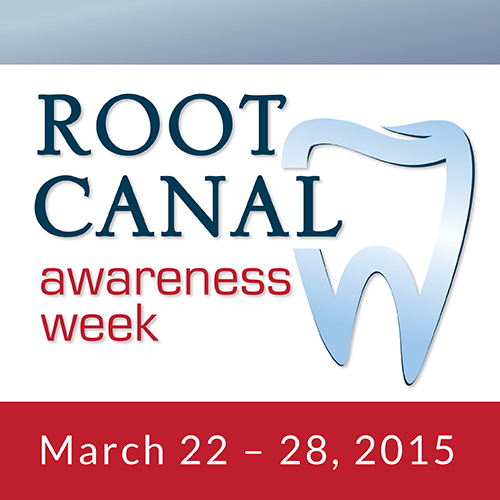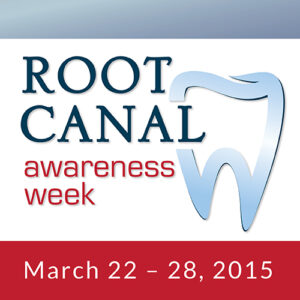
by Dr. Jacqueline S. Allen | Aug 31, 2015 | Blog, Endodontics, Endodontist, Phoenix Endodontic Group, Root Canal
 If you are making an appointment to visit our office, chances are your dentist suspects you may need a root canal. The reasons for needing a root canal vary – perhaps you may be experiencing pain, swelling and sensitivity to heat or cold. You may not have symptoms at all, but your dentist may see something on the x-ray that makes a tooth look “suspicious.” Whatever it is that brings you to a Phoenix endodontist, if you know what to expect at your first visit you can help to manage your expectations accordingly.
If you are making an appointment to visit our office, chances are your dentist suspects you may need a root canal. The reasons for needing a root canal vary – perhaps you may be experiencing pain, swelling and sensitivity to heat or cold. You may not have symptoms at all, but your dentist may see something on the x-ray that makes a tooth look “suspicious.” Whatever it is that brings you to a Phoenix endodontist, if you know what to expect at your first visit you can help to manage your expectations accordingly.
It has been said that there are three fears when visiting a dentist: time, money, and pain. Let’s examine those three fears:
Time: A visit to the Phoenix Endodontic Group is not much different than a visit to your dentist. If you are being seen on an emergency basis, staff will be working you in between scheduled patients and will do their best to see that you are comfortable and as pain free as possible as you wait to see the endodontist. Be aware that cases seen by Phoenix endodontists can be more difficult and complex than routine dental visits. This means that the endodontist may have to spend a little more time with the patient before you to take care of their needs. Be assured that both Dr. Jacqueline S. Allen, and Dr. Allen will spend whatever time is necessary with you – to alleviate your pain and discomfort.
Money: Receiving quality dental care does indeed cost money and having a root canal is no exception. As you would do before going to make any purchase, be prepared for the financial discussion at the endodontic office. If you have dental insurance it is a good idea to present your insurance card or at least have basic information regarding your dental plan before you go for your appointment. The treatment coordinator will assist with obtaining information from the insurance company, filing the claim, etc. Bear in mind that your benefits represent an agreement between you and your dental insurance company – the endodontic office tries to help facilitate the process, however at times it may be necessary for you to communicate directly with the insurance company for detailed information and questions. The dental insurance company is prohibited by law from discussing certain aspects of coverage with anyone other than you.
Pain: No one likes to hurt – no one likes tooth pain. The endodontists at Phoenix Endodontic Group specialize in alleviating tooth pain and discomfort and get you back to feeling normal as quickly as possible. Over the counter pain medication such as Tylenol, Advil and Alleve are all very effective in fighting pain, swelling and discomfort associated with tooth pain. Additionally, antibiotics such as Amoxicillin will be prescribed to combat infections and a small percentage of patients may require stronger, prescription pain relievers.
The endodontist’s office is usually not first on anyone’s list as a place to hang out. If you ever have to visit one of our Phoenix endodontists, rest assured that we have the experience to treat you with competence and compassion. We will help you to get through the issue that brought you to our office in the first place – and help to manage those three fears: time, money and pain.

by Dr. Jacqueline S. Allen | Jul 17, 2015 | Apicoectomy, Blog, Endodontics, Phoenix Endodontic Group
 Root canal treatments have a high success rate when it comes to saving an infected tooth – close to 95 percent. However, sometimes a standard root canal will fail and a surgical procedure known as an apicoectomy will be necessary.
Root canal treatments have a high success rate when it comes to saving an infected tooth – close to 95 percent. However, sometimes a standard root canal will fail and a surgical procedure known as an apicoectomy will be necessary.
Why Root Canals Can Fail
Dr. Jaqueline S. Allen, an endodontist with the Phoenix Endodontic Group, explained that there are a number of reasons that a root canal treatment might not be successful.
“Sometimes there is simply not enough tooth left to place a functional restoration,” Dr. Allen explained. “Other reasons for root canal failures can include a vertical fracture in the root that cannot withstand chewing on the tooth, a poor crown to root ratio, or an unusual root anatomy that creates difficulty in cleaning the entire root structure.”
Two other reasons that a root canal treatment might not succeed include a significant delay in the final crown being placed on top of the treated tooth, and when a successfully treated tooth develops an infection later, perhaps due to new cracks or fractures in the tooth, or additional tooth decay.
How an Apicoectomy Differs From a Root Canal
There are several significant differences between a standard root canal treatment and an apicoectomy:
- In a root canal, the endodontist approaches the treatment by going through the crown of the tooth. In an apicoectomy, he or she will perform the treatment by starting at the root (or apex) end of the tooth. To do this, he or she must make an incision and move the gums out of the way.
- During a standard root canal, the focus is on cleaning all the root canals in the tooth. For an apicoectomy, since the other canals have already been filled and sealed, the focus is on removing the infected tooth root and placing a small filling to prevent further problems.
- Because an apicoectomy requires a gum incision, stitches will be necessary, and bone grafts may be used to encourage your jawbone to fill in the area around the tooth root that is removed.
As far as recovery from an apicoectomy is concerned, Dr. Allen advised that patients should be prepared for possible post-operative bruising or/and swelling (which can be taken care of with the application of ice packs), and should allow one to two hours for the procedure itself. They should avoid vigorous exercise for several days and should avoid brushing in the area for two to five days. A return appointment to remove the sutures will also be necessary.

by Dr. Jacqueline S. Allen | Apr 22, 2015 | Blog, Cracked Teeth, Endodontics, Phoenix Endodontic Group
 Cracked teeth are a common malady in the endodontic world. Dr. Allen of Phoenix Endodontic Group treats this problem frequently and notes some common causes, often food-related. Here’s what you should know about foods that commonly cause tooth breakage and what to do if you experience the issue.
Cracked teeth are a common malady in the endodontic world. Dr. Allen of Phoenix Endodontic Group treats this problem frequently and notes some common causes, often food-related. Here’s what you should know about foods that commonly cause tooth breakage and what to do if you experience the issue.
One of the leading food-related culprits that cause cracked teeth is ice. The impact of the tooth striking the very hard surface of the ice as you chew places excessive stress on the tooth’s enamel. The tooth may crack instantly or over time may incur many microscopic fractures until the tooth eventually breaks apart. The result can be quite painful and require major work to fix.
In addition to ice, other frequent fracture-causing foods are hard candy and smaller nuts, says Dr. Allen. Holidays tend to generate lots of patients with cracked teeth since such treats are more easily accessible. Though candy in any form is not good for your teeth, if you choose to eat hard candy it should be sucked on rather than chewed to prevent dental fractures. Be cautious when eating hard nuts and don’t nibble them with your front teeth.
Cracked teeth can also result from random eating incidents. One patient cracked a tooth on a pebble in her salad, and in another unusual circumstance , A patient was chewing the marrow out of a bone and accidentally bit the bone, Dr. Allen describes. These types of occurrences may not be avoidable, unfortunately. Even if you do not notice any visible damage from accidentally biting something very hard, it’s best to have your tooth checked out after the incident.
Should you experience cracked teeth from eating or from any other incident, talk to your endodontist right away. Generally the milder the damage, the less extensive the work needed to repair it. If the damage is ignored the chances of the tooth being eventually lost will increase exponentially.
Dr. Allen and her colleagues at Phoenix Endodontic Group are experts at handling cracked teeth and more, giving you the best odds of keeping your natural teeth. Don’t hesitate to reach out right away for best results!

by Dr. Jacqueline S. Allen | Mar 23, 2015 | Blog, Endodontics, Phoenix Endodontic Group, Root Canal
 Root canal treatment has come a long way since its earliest days in the 17th century. Technology and treatment methods have advanced so much that root canals can be completed in mere hours with little discomfort. Dr. Allen of Phoenix Endodontic Group provides some information on this tooth-saving procedure. Just in time for Root Canal Awareness Week!
Root canal treatment has come a long way since its earliest days in the 17th century. Technology and treatment methods have advanced so much that root canals can be completed in mere hours with little discomfort. Dr. Allen of Phoenix Endodontic Group provides some information on this tooth-saving procedure. Just in time for Root Canal Awareness Week!
Unpleasant root canals are a thing of the past thanks to gifted Endodontists, new materials, better magnification and advanced tools and techniques. During treatment, your doctor will x-ray or scan the troublemaking tooth to determine a course of action. The infected pulp inside the tooth will be completely removed and the tooth cleaned thoroughly. To replace the compromised pulp, the tooth is refilled using a special material called gutta percha and sealed. The result is a shining tooth and a smiling patient!
Expert endodontists such as Dr. Allen are highly trained in the art of saving infected teeth and are well informed on the best methods of treatment. Dr. Allen is excited about the future of the field, especially as new technologies and techniques make their way into the spotlight. Pulpal regeneration (basically bringing a dead tooth back to life) is a new and exciting advancement in endodontics, Dr. Susan says. While many damaged teeth can be saved today with timely attention, this type of technology could boost that success ratio even higher.
For those patients who are nervous about dental or medical procedures, there are multiple solutions. These can range from something as simple as nitrous oxide during the procedure, to a pre-appointment anxiolysis medicine, all the way to light IV sedation depending on the level of anxiety, Dr. Allenadvises.
The best strategy for a successful root canal is to treat it promptly. Seeing your general dentist on schedule will help identify problems that are in early development, and visiting Dr. Allen will ensure that you receive the most skilled treatment possible.
For more information about Root Canal Awareness Week or other dental questions, talk to the friendly and knowledgeable staff at Phoenix Endodontic Group!

by Dr. Jacqueline S. Allen | Sep 8, 2014 | Endodontics, Phoenix Endodontic Group, Root Canal
 There comes a point in almost everyone’s life where they are faced with dental pain sometimes from infection, sometimes from an injury, and sometimes for no specific reason at all. When that happens to you, your best option is to see a dentist that specializes in dealing with pain and infection that come from inside the tooth is an Endodontist.
There comes a point in almost everyone’s life where they are faced with dental pain sometimes from infection, sometimes from an injury, and sometimes for no specific reason at all. When that happens to you, your best option is to see a dentist that specializes in dealing with pain and infection that come from inside the tooth is an Endodontist.
At Phoenix Endodontic Group, our dentists received specialty training after dental school to learn how to best treat patients that have acute tooth pain. We do not do hygiene, crowns, bridges or other restorations is our focus is on root canals and getting our patients out of pain.
We would like you to know what to expect when you visit our office for the first time. Phoenix Endodontic Group is a paperless office that means you can fill out your registration and health history prior to arriving at our office via our HIPPA compliant, secure website. Because we are not your regular dentist, we need to find out as much about you as we can in terms of your health history, medications taken and prior dental experience.
If you have been referred to Phoenix Endodontic Group, your dentist should have provided a referral form and x-ray of the area to be considered for treatment. We would also need to obtain your dental insurance information (if applicable) so that we can assist you in filing a claim for the office visit.
Each patient is unique and no two root canals are the same. That being said, on your first visit you will always have an x-ray taken by our staff and a consultation by one of our endodontists. After the consultation, if treatment is needed will schedule back to do this on a different day.
Other patients will elect to begin the root canal procedure at this first visit. If treatment is started at the first visit, the goals are to diagnose the problem, open the tooth and remove the nerve (the source of the issue). If the patient has an abscess or is otherwise uncomfortable, medication will be placed inside the tooth and the patient may be prescribed additional medications.
Because Phoenix Endodontic Group is a specialty office, there is no guarantee that root canal treatment will be finished at the first visit, some are. Other root canals require a second visit to finish the appointment is usually two weeks later. The time in between allows the tooth to heal as medication would have been placed inside the tooth at the first visit. Once the patient is asymptomatic, the treatment is completed.
Whether your root canal requires one visit or two, Phoenix Endodontic Group will always provide the highest standards of patient comfort and care found anywhere.

by Dr. Jacqueline S. Allen | Jul 15, 2014 | Blog, Endodontics, Mission of Mercy, Phoenix Endodontic Group
 This topic is an easy one for me to talk about because I am so proud of the way the endodontists in Central Arizona have come together to make the Central Arizona Dental Society Foundation’s annual Dental Mission of Mercy become a huge success in just three short years of hosting these events.
This topic is an easy one for me to talk about because I am so proud of the way the endodontists in Central Arizona have come together to make the Central Arizona Dental Society Foundation’s annual Dental Mission of Mercy become a huge success in just three short years of hosting these events.
For those of you unfamiliar with the Arizona Dental Mission of Mercy, please visit www.azmom.org for more information, but in simple terms CADS AZMOM is a two day dental clinic held the 2nd weekend in December at the Arizona State Fairgrounds. Patients are treated at NO CHARGE to basic dental care on a first come, first served basis. This massive undertaking requires the services of 1,500 volunteers of which 300 are dentists.
For the past two years CADS AZMOM has treated approx. 3,700 patients and provided $2.7 million dollars in free dental care. Our upcoming event on December 12th-13th, 2014 promises to be the biggest event yet.
In 2013, the Endo Department performed approximately 212 root canals over the 2 days. This is an astounding figure relative to dental Mission’s of Mercy in other states. Dental supply companies as well as individual endodontists brought their own microscopes to the event for all who were performing endo to use. It was an extraordinary site to see the finest endodontists in Central Arizona sit down side by side to treat those members of the community who were in need.
As a founding board member and president-elect of CADSF I have a tremendous amount of appreciation for my fellow endodontists and the work they have done at CADS AZMOM. I can’t thank them enough, because without them those patients could possibly still been in pain with teeth that needed a root canal. We made an immediate difference in the lives of those less fortunate, using the skills we were given and a little spare time during the holiday season of giving. I want to personally thank my fellow endodontists and all who volunteer at CADS AZMOM.
We still need a lot of volunteers (non-dental as well as dental) for the 2014 CADS Arizona Mission of Mercy. Here’s how to become involved:
info@azmom.org
www.azmom.org
480-264-5676 Bri Miller, Event Coordinator
Thank you,
Jacqueline S. Allen, D.D.S., M.S.
President-Elect
Central Arizona Dental Society Foundation

 If you are making an appointment to visit our office, chances are your dentist suspects you may need a root canal. The reasons for needing a root canal vary – perhaps you may be experiencing pain, swelling and sensitivity to heat or cold. You may not have symptoms at all, but your dentist may see something on the x-ray that makes a tooth look “suspicious.” Whatever it is that brings you to a Phoenix endodontist, if you know what to expect at your first visit you can help to manage your expectations accordingly.
If you are making an appointment to visit our office, chances are your dentist suspects you may need a root canal. The reasons for needing a root canal vary – perhaps you may be experiencing pain, swelling and sensitivity to heat or cold. You may not have symptoms at all, but your dentist may see something on the x-ray that makes a tooth look “suspicious.” Whatever it is that brings you to a Phoenix endodontist, if you know what to expect at your first visit you can help to manage your expectations accordingly.









